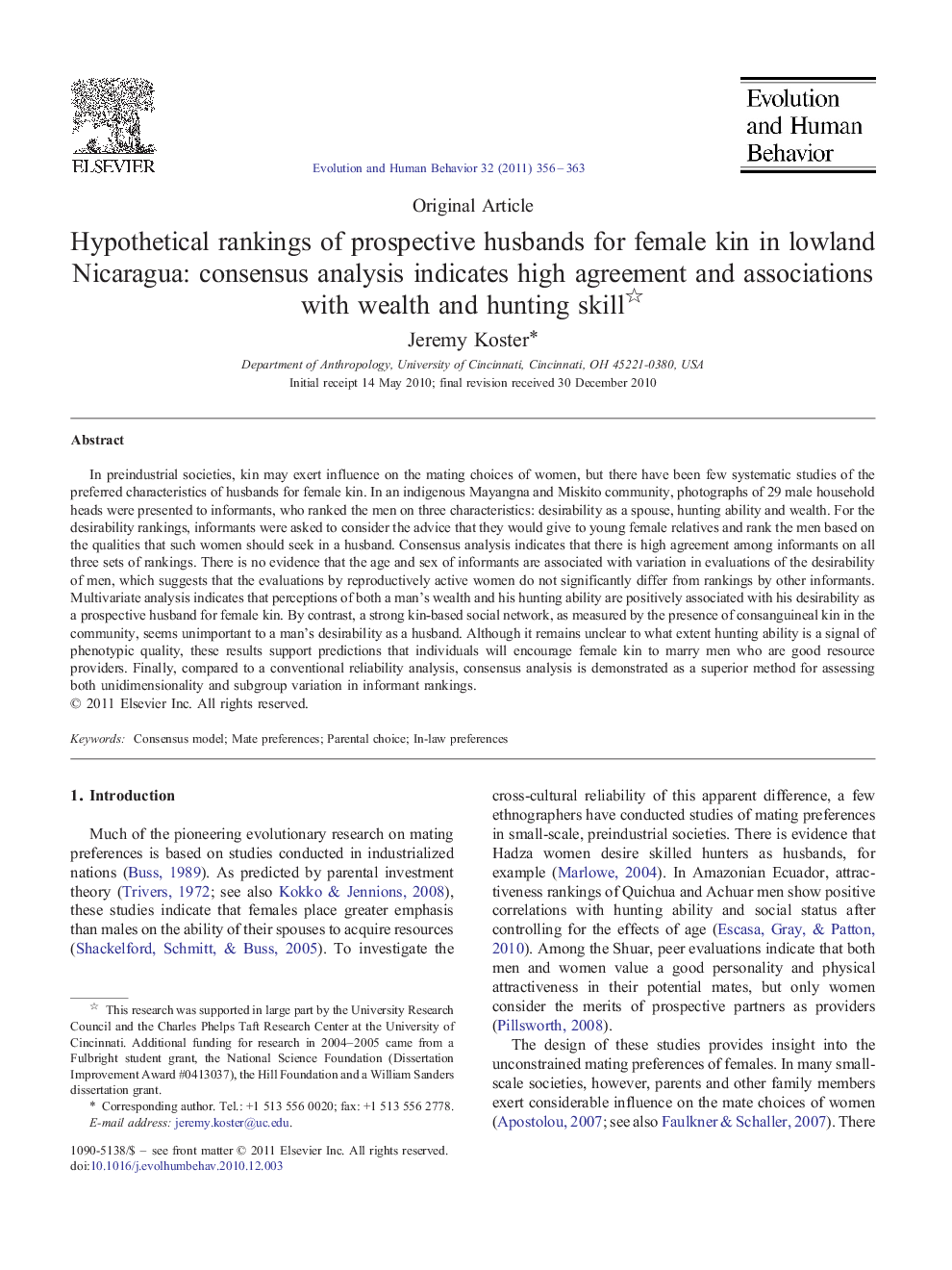| Article ID | Journal | Published Year | Pages | File Type |
|---|---|---|---|---|
| 943286 | Evolution and Human Behavior | 2011 | 8 Pages |
In preindustrial societies, kin may exert influence on the mating choices of women, but there have been few systematic studies of the preferred characteristics of husbands for female kin. In an indigenous Mayangna and Miskito community, photographs of 29 male household heads were presented to informants, who ranked the men on three characteristics: desirability as a spouse, hunting ability and wealth. For the desirability rankings, informants were asked to consider the advice that they would give to young female relatives and rank the men based on the qualities that such women should seek in a husband. Consensus analysis indicates that there is high agreement among informants on all three sets of rankings. There is no evidence that the age and sex of informants are associated with variation in evaluations of the desirability of men, which suggests that the evaluations by reproductively active women do not significantly differ from rankings by other informants. Multivariate analysis indicates that perceptions of both a man's wealth and his hunting ability are positively associated with his desirability as a prospective husband for female kin. By contrast, a strong kin-based social network, as measured by the presence of consanguineal kin in the community, seems unimportant to a man's desirability as a husband. Although it remains unclear to what extent hunting ability is a signal of phenotypic quality, these results support predictions that individuals will encourage female kin to marry men who are good resource providers. Finally, compared to a conventional reliability analysis, consensus analysis is demonstrated as a superior method for assessing both unidimensionality and subgroup variation in informant rankings.
